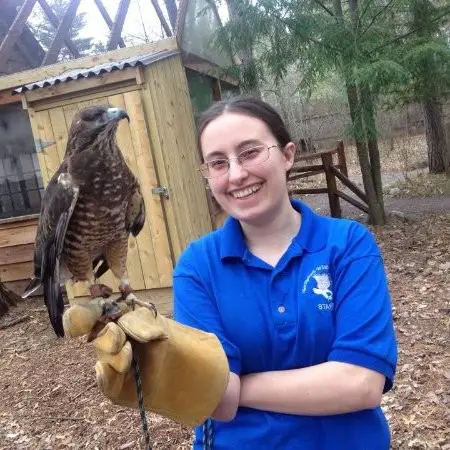As an expert in ornithology, I frequently receive inquiries from concerned individuals wondering about the dietary habits of geese, including the often-asked question: “Can geese eat chocolate?” Given the prevalence of this query and the potential risks associated with feeding certain foods to our avian companions, I’ve decided to delve into the topic in detail. In this blog post, I aim to provide comprehensive insights into the compatibility of chocolate with the dietary requirements and health of geese, shedding light on why it’s crucial to understand and adhere to the principles of avian nutrition.
Can Geese Eat Tomatoes?
Can Geese Eat Chocolate?
Geese are herbivores and primarily consume plant-based foods such as grass, leaves, shoots, and seeds. Geese should never be fed chocolate under any circumstances. Chocolate contains theobromine, a highly toxic compound to birds, including geese. Feeding chocolate to geese can have severe consequences and can harm their health. It’s crucial to understand that even though geese may consume plant matter in the wild, chocolate poses a significant risk to their well-being due to its toxic properties. Therefore, it’s essential to refrain from giving chocolate to geese and to prioritize their health and safety above any desire to share sweet treats with them.

Can Geese Eat Corn?
Is Chocolate a Healthy Food for Geese?
Inquiring whether chocolate is healthy for geese leads us into a nuanced discussion. While chocolate contains certain nutrients that could benefit our feathered friends, the reality starkly contrasts with this notion. It’s quite the opposite. Chocolate is not a healthy food for geese. The inherent danger chocolate poses to geese far outweighs any potential advantages.
Chocolate, though enjoyed by humans, contains compounds such as theobromine and caffeine, which can be toxic to many animals, including geese. Even in small amounts, ingestion of chocolate by geese can lead to severe health complications and, in some cases, prove fatal. Therefore, despite its enticing taste and perceived benefits, chocolate is not a healthy food choice for geese.
As responsible caretakers of these avian creatures, it’s imperative to prioritize their well-being by steering clear of foods like chocolate that pose significant risks to their health. Instead, opting for a diet rich in natural and safe sources of nutrition ensures the longevity and vitality of our feathered companions.
Eating Chocolate Will Hurt Geese
Eating chocolate poses a significant threat to geese due to theobromine, a naturally occurring toxin in cocoa. While serving as a defense mechanism for the cocoa plant against consumption by creatures like birds, this compound is highly dangerous for avian species such as geese. The concentration of theobromine varies in different types and brands of chocolate, with darker varieties containing higher levels. Even a small amount of chocolate or cocoa from certain brands can cause distress or even instant death for geese upon ingestion. Therefore, it is crucial to avoid feeding any chocolate to birds to ensure their well-being and safety.
Can Geese Eat Carrots?
Is Milk Chocolate Okay for Geese?
While milk chocolate generally contains lower levels of the toxic compound than dark chocolate, it’s still unsafe for goose consumption. Geese should avoid consuming any chocolate due to its harmful effects. Even small amounts of chocolate can lead to adverse health effects such as vomiting and diarrhea, and in severe cases, it can be fatal. Therefore, it’s crucial to keep chocolate away from geese and offer them alternative, bird-safe treats.

Is Dark Chocolate Okay for Geese?
No, dark chocolate is not okay for geese. It contains a higher amount of theobromine than typical milk chocolate, making it especially dangerous for them. Even a small quantity or nibble of dark chocolate can severely harm or kill a goose.
Do Geese Eat Worms?
Is White Chocolate Okay for Geese?
No, white chocolate isn’t suitable for geese. While technically not chocolate due to the absence of cocoa, it contains significant amounts of sugar, salt, and other potentially harmful ingredients. It’s best to avoid giving this to geese.

Can Geese Ever Have a Little Chocolate?
No, geese should never be given chocolate under any circumstances. It is well-documented that chocolate is toxic to their biology and can make them gravely sick or even lead to death. Despite some people’s insistence on feeding their animals people food like chocolate, it’s crucial to understand the risks involved and refrain from such practices.
Is Chocolate Bad for Goslings, Too?
Yes, chocolate is indeed harmful to goslings. Baby geese, or goslings, are particularly vulnerable to its effects due to their underdeveloped systems and lower body mass than adult geese. Feeding them chocolate can lead to severe sickness or even death. Deliberately giving chocolate to goslings is irresponsible and cruel, as it can result in disastrous consequences for these fragile creatures.
What steps should you take if your geese consume chocolate?
Steps to take if your geese consume chocolate:
- Assess the Situation: If you suspect that your geese have consumed chocolate, remain calm and attentive.
- Contact Veterinary Help: Your best action is to contact your vet immediately. If your vet doesn’t make house calls, arrange to bring your birds to them as soon as possible.
- Observation for Mild Consumption: If you believe the geese have ingested only a small amount of milk chocolate, consider observing them closely to monitor their condition.
- Be Aware of Symptoms: While a small piece of milk chocolate may not lead to serious injury, be prepared for potential symptoms such as diarrhea and changes in behavior.
- Identify Serious Symptoms: If you notice any severe symptoms such as weakness, trembling, or an inability to stand, or if you suspect they have consumed a large quantity of chocolate or any dark chocolate, seek immediate medical attention for your geese.
- Prompt Medical Care: Getting your geese to medical care promptly is crucial for survival if they have ingested harmful amounts of chocolate.
- Stay Vigilant: Even if the initial observation indicates mild symptoms, monitor your geese closely for worsening conditions.
- Prevention for the Future: Ensure that your geese cannot access chocolate in the future to prevent such incidents from occurring again.
Remember, swift action and proper medical attention are vital in ensuring the well-being and survival of your geese in case of chocolate ingestion.
Common Myths About Geese and Chocolate
Common myths about geese and chocolate:
- Immunity to Chocolate Toxicity: One common myth is that geese are immune to the harmful effects of chocolate. However, if consumed enough, geese can suffer from chocolate toxicity like many other animals.
- Ability to Digest Chocolate: Some believe geese can digest chocolate without adverse effects. In reality, chocolate contains substances such as theobromine and caffeine, which can be toxic to geese if ingested in large quantities.
- Preference for Chocolate: There’s a misconception that geese are attracted to and enjoy consuming chocolate. While geese may be curious creatures, they do not naturally seek out chocolate as a food source.
- Harmless in Small Amounts: Another myth is that small amounts of chocolate are harmless to geese. While a tiny piece of milk chocolate may not cause immediate harm, monitoring geese closely for adverse reactions is essential.
- All Types of Chocolate Are Equally Harmful: Some believe all types of chocolate, whether dark, milk, or white, pose the same risk to geese. In reality, dark chocolate contains higher levels of theobromine and caffeine, making it more toxic to geese than milk or white chocolate.
- No Need for Veterinary Attention: There’s a misconception that geese do not require veterinary attention if they consume chocolate. However, prompt medical care is crucial if geese exhibit symptoms of chocolate toxicity, as it can be life-threatening if left untreated.
- Geese Can Safely Consume Human Foods: Some may assume that scavengers can safely consume human foods without harm. However, certain foods, including chocolate, can be toxic to geese and should be avoided.
- Self-Regulation in Consumption: It’s a myth to believe that geese will self-regulate their consumption of chocolate if given access to it. In reality, geese may not recognize the potential dangers of chocolate and may consume it in harmful quantities if available.
Does Chocolate Have Any Health Benefits for Geese?
Chocolate does not offer any health benefits to geese. It can harm them if consumed in significant amounts. Ingestion of chocolate can lead to various symptoms such as diarrhea, vomiting, tremors, seizures, and even death in severe cases. Therefore, it’s crucial to avoid feeding chocolate to geese and keep it out of their reach to prevent accidental ingestion. Instead, geese should be provided with appropriate foods such as grains, greens, and water to maintain their health and well-being.
FAQ’S
What is safe to feed geese?
To ensure the safety of geese, suitable food options include mealworms, freeze-dried crickets, oats, birdseed, cracked corn, peas, lettuce, spinach, and kale. Mimicking their natural food choices, such as insects, is beneficial for their health, as TreeHugger recommends.
Can geese have candy?
Since candy falls under processed foods containing high sugar levels, geese shouldn’t have it. Just like humans, geese should avoid consuming processed foods, including candy, as they are unsuitable for their diet. Feeding geese candy could adversely affect their health, so it’s best to refrain from offering them such items.

Can geese eat peanut butter?
Yes, geese can eat peanut butter. Peanut butter is a rich and nutritious food that provides an essential energy boost, making it suitable for consumption by various bird species, including geese. It’s important to offer it in moderation and as part of a balanced diet, especially during winter when birds may need additional energy. However, ensure that the peanut butter is free from additives like salt or sugar, as these can harm birds.



